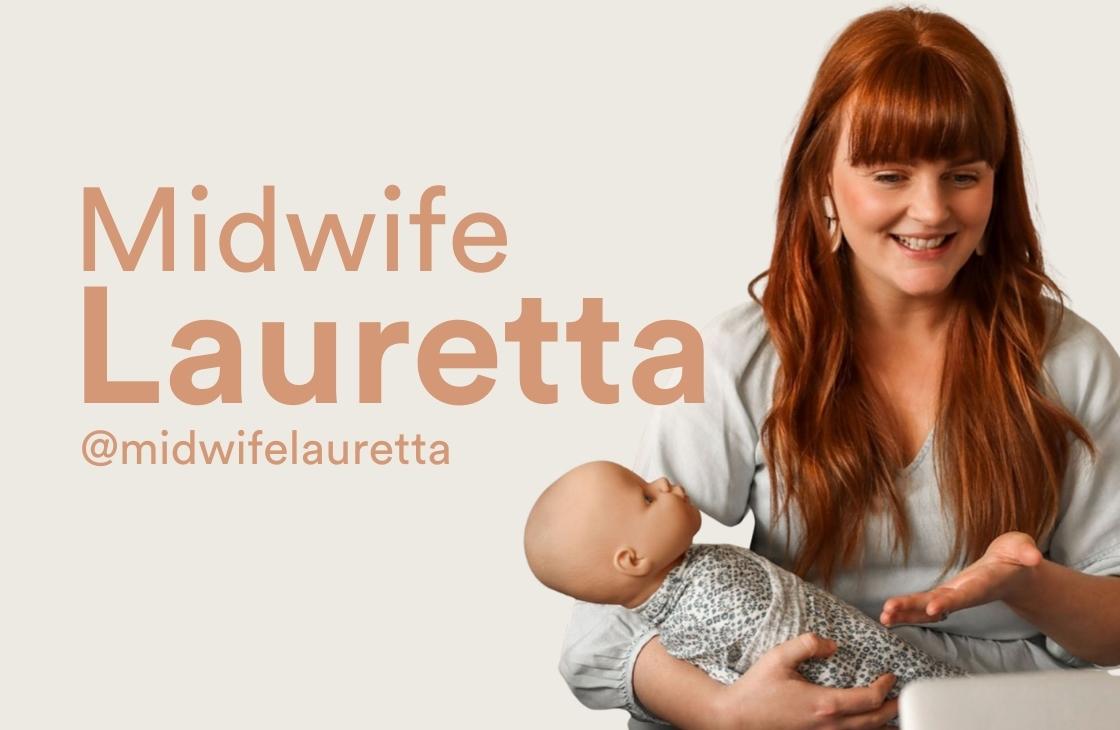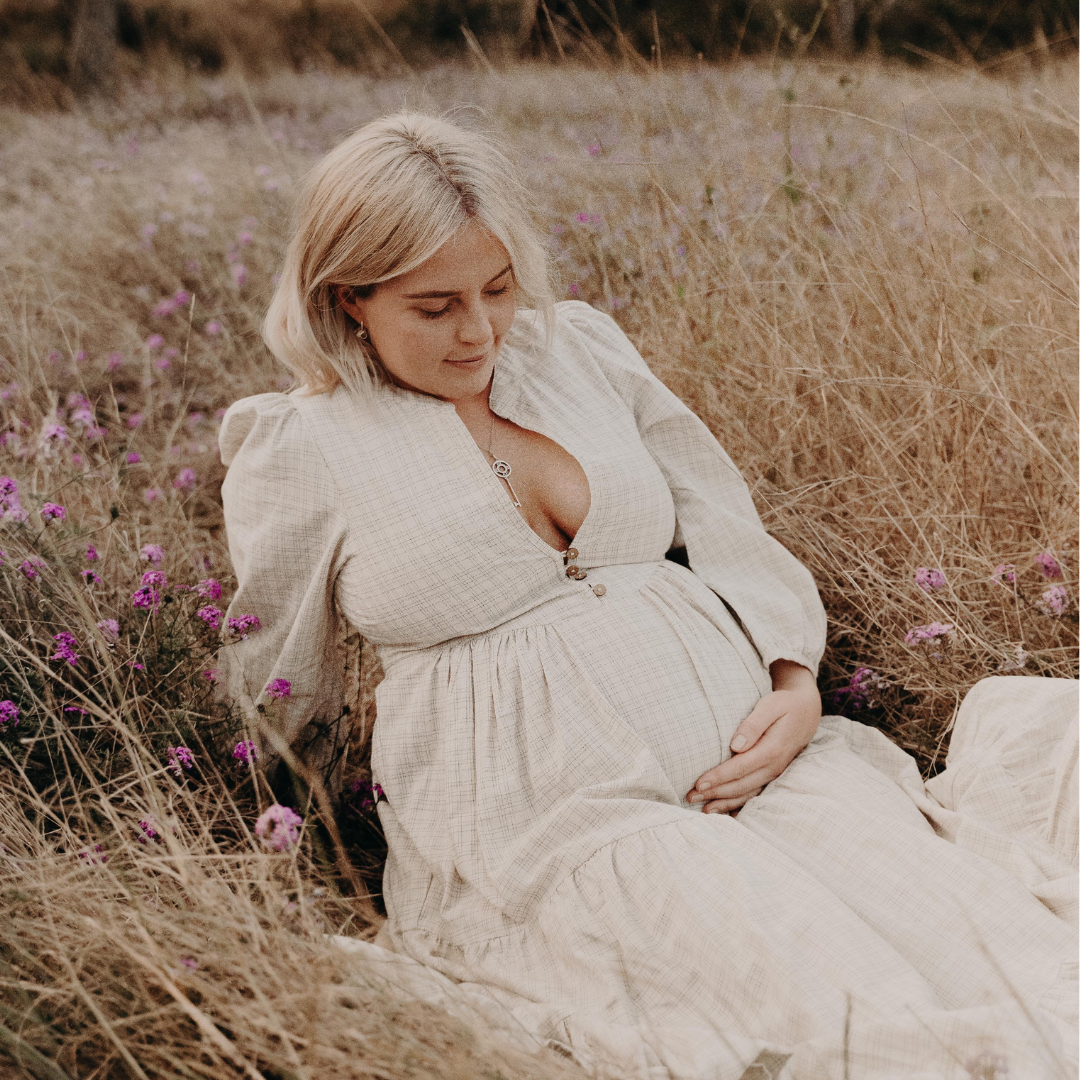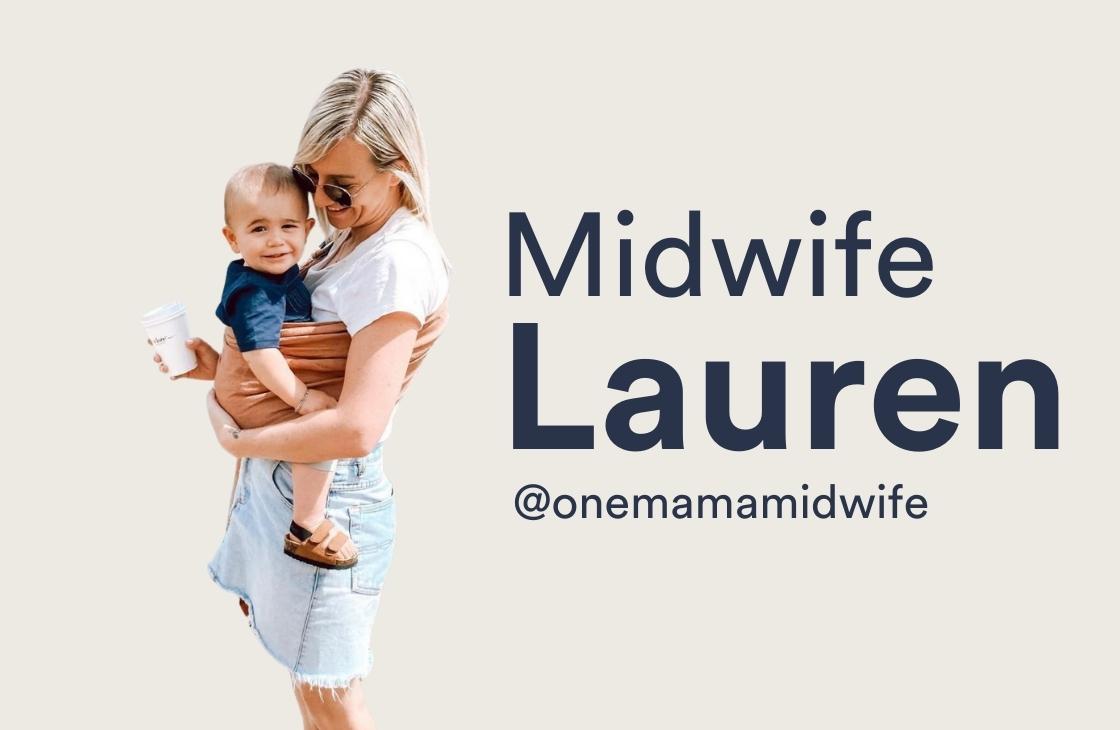Ask The Midwife - Q&A With Lauretta

Next on our Ask The Midwife Q&A series is Lauretta. Lauretta reveals top postpartum care tips and the importance of continuity of care from midwives.

How did you get into your profession of midwifery and what are your biggest influences?
I always had an interest in Women’s health and decided to study Nursing as I wasn’t 100% sure about what I wanted to do – I loved all things Women’s health and as soon as I did a shift on the postnatal ward and with a maternal and child health nurse, I just knew I had to do midwifery!
I worked as a nurse in Special care nursery, ICU, paediatric ward and did some medical and surgical nursing which I’m grateful for as it gave me a really great well rounded experience. But Midwifery is my true passion, I just love supporting women, their families and helping them make their pregnancy, birth & postpartum a positive experience. We have such a way to go in the way we do this in the hospital system and in the community, I want to help be part of that change in my own small way.
Biggest Influences?
It’s way too hard to pick just one - My biggest influences would be a few of my wonderful colleagues, Kerry who taught me the true art of midwifery and being ‘with women’, the holistic care that I fear we are losing in the midst of high intervention rates. Another influence is dear midwifery colleague and friend Ali who supported me in my first birth, she is a true advocate for women and she continues to inspire me.
I’m also a big fan girl of Rachel Reed (a Midwife, lecturer, researcher & Author) – I think the way she brings a unique perspective and insight to pregnancy and birth has made me look at & question our practices. It’s hard to unsee and only further fuels my passion to want to improve the culture of birth for women and ensure every women is emotionally and physically well after birth.
What's the best part about your job?
Ooh again, I’m not good at a brief answer – there are so many!
The moments where you see women just do it, the courage and strength and being witness to that, helping a baby into the world – the surreal moment of having this little person in between two worlds.
The little moments, in the quiet of the night, tired mamas, awake and cuddling or feeding babies, being witness to that and women just doing all the often unseen work of mothering, whilst recovering from birth themselves.
I love that being a Midwife means women are often quite open in sharing their experiences with me, being invited into that.
What is the best way to utilise a midwife and what are some things women miss out on asking for help with?
If you’re fortunate to have access to midwifery continuity of care I think this would be the absolute best way to utilise a Midwife – we know it’s considered the ‘gold standard of care’ as women who have a known midwife have better birthing outcomes physically and emotionally, as do their babies.
I would really encourage women to ask lots of questions, get as much support with latching and positioning if you’re breastfeeding and build your confidence before you go home.
What are the common misconceptions about what midwives do, if any?
Oh yes, there are lots of these. Probably the main one is that we spend our days cuddling beautiful newborns! If only that was true, although we may be lucky enough to hold your baby if they’re unsettled or we’re swaddling, changing a nappy or passing them to mum – this is fairly rare.
In the hospital system we are usually juggling a million things at once, depending on which area we are working in, for example we might be looking after pregnant women, monitoring with CTG’s or the doppler, doing observations, documenting, educating, preparing for inductions.
In the birthing ward we will be supporting the woman and her partner, monitoring, taking obs, communicating with the midwife in charge and the medical staff. Postnatally we might be helping with breastfeeds, formula demos, doing blood sugars on babies, taking obs on mum and baby, carrying out postnatal checks, educating, discharging and providing pain relief or other medication!
What are your top tips for postpartum and perineal care?
My number one would be get horizontal – I can’t stress how important horizontal rest is!
Your pelvic floor has done some serious hard work carrying and birthing, and your placenta leaves behind on average a dinner plate sized wound – I truly believe if this was visible we would have more support for women postnatally.
Rest is just so important – if you injure your knee or ankle you would be resting it but we don’t do this enough to help our bodies heal and recover post birth, what we do in the first few months afterwards can impact our health for the rest of our lives. We have a small window to really be nourished and give our bodies the best chance to heal.
I love the Noonie padsicles to help with your tender perineum too – I ordered some for my sister and she loved them as they were so easy to use in those blurry newborn days.
I remember freezing my pads for perineal care when I was postpartum, which was ok but they always melted so I ended up soaked! The Noonie padsicles make it so easy with the cooling and soothing in one.
Make your bedroom a sanctuary, low lighting, nice linen, warm and have a little caddy of water, flask for tea, snacks and everything for your boobs and baby! Partners can be in charge of making sure it’s topped up.
Make a postpartum plan while you’re pregnant – think nourishing freezer meals or meal delivery services, snacks you can eat one-handed, your support crew (both professionally & personally eg. Lactation consultant, Women’s health physio, midwife, massage, psychologist, GP etc and who you can call on in your personal village to help you practically and emotionally).
What can people do to support women postpartum?
I think it’s the practical things that support rest as I’ve spoken about above – FOOD is probably the biggest one, a voucher for meal delivery, putting in for a postpartum doula, voucher for a massage, or just being present and not visiting expecting to be waited on.
I love the saying from Dr Oscar Serralach “in the first 6 weeks there are no visitors, only staff” we need to do better and learn from other cultures around the world who value and support care for women in postpartum. In other parts of the world such as in East Asian cultures, postpartum women have daily massages, they are surrounded by family supporting her recovery.
Any wise words of advice for our expecting mamas?
Choose your care provider wisely – meet them, ask questions about their philosophy around birth, do they support your decisions and the kind of birth you want? What are their birth stats like? What about the hospital you’re birthing at? Do you feel like you can work in partnership with them and feel safe, supported and respected?
Please don’t leave your birth experience up to ‘going with the flow’ it’s not enough to just hope for the best, it’s really important that you educate yourself and prepare both you and your partner as much as possible.
I’d love to leave you with one of my favourite quotes from the wonderful Ina May Gaskin, as a reminder that you have got this mama, you can do this and you will do this!
“We are the only species that doubts our ability to give birth. It’s profitable to scare women about birth. But let’s stop it. I tell women: your body is not a lemon”
About Lauretta
Lauretta is a Calmbirth educator, Optimal Maternal Positioning educator, Acuneedling Midwife and Mama of two beautiful girls. She's based in Ballarat, Victoria and have both in-person and online options to support women and their partners/support people in preparing for birth & postpartum. You can find her on Instagram @midwifelauretta.
Website www.ballaratborn.com



